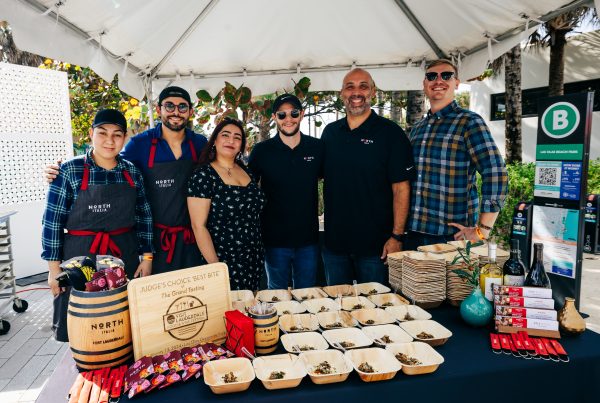For now, the sea turtles are gone from Gumbo Limbo Nature Center. Their absence relates to changes at Boca Raton’s iconic facility that opened nearly 40 years ago.
To understand what’s happening, it’s necessary to understand the complexities of Gumbo Limbo.
The city owns the 15-acre site between the Intracoastal Waterway and A1A north of Palmetto Park Road. But Gumbo Limbo is part of Red Reef Park, which is managed and financed by the Greater Boca Raton Beach and Park District.
Boca Raton’s recreation services department oversees Gumbo Limbo’s education programs and the turtle nesting program. The city also is in charge of the aquariums and recruits the volunteers who explain exhibits to visitors.
Since the program’s creation 13 years ago, however, the non-profit Friends of Gumbo Limbo—now called the Gumbo Limbo Coastal Stewards—has run and financed sea turtle rehabilitation. Until recently, however, three key people who operated the program were city employees.
John Holloway has been the Stewards’ executive director since January 2020. About 18 months ago, he and then-Deputy City Manager Mike Woika began discussions about the Stewards taking over all turtle rehab management, including staff, and ending the crossover.
Last August, Holloway said, those talks began “in earnest” with Assistant City Manager Chrissy Gibson. She had become the liaison after Woika retired. Holloway said the Stewards had become concerned about the program’s cost. Gibson said the city believed that the program would work better with the Stewards “funding everything.”
However noble, turtle rehabilitation is not one of Boca Raton’s core services. The work, Holloway said, was increasingly “outside the city’s jurisdiction.” In addition, the annual cost to the city was about $300,000.
As part of that transition, the two remaining employees would work for the Stewards. (The third already had left for a job at Loggerhead Marinelife in Juno Beach.) But Whitney Crowder, who ran the program, said in a letter to the city—which the Sun Sentinel first reported—that she did not want to work for the Stewards.
Crowder accused Holloway of “toxic and mentally abusive leadership.” Holloway denied it. Crowder had not worked directly for him. This week, the Stewards’ board released a letter saying that it “fully supports” Holloway’s “sound management.”
Last week, Gibson said, the city placed Crowder and the other employee on paid leave until the end of May, when their positions will be eliminated. Shifting those positions to the Stewards had been part of what Gibson had hoped would be “a seamless transition.”
Turtle rehabilitation requires a permit from the Florida Fish and Wildlife Conservation Commission, or FWC. Crowder held the permit. When she didn’t move to the Stewards, the group didn’t have a permit to continue the work. The veterinarian with whom the Stewards had contracted also left.
At that point, Gibson said, the FWC contacted the city, which arranged for the turtles to be moved temporarily to other facilities, including Loggerhead. Gibson took issue with last week’s Sun Sentinel story, which said that the turtles had been “yanked” and “hoisted” from their tanks.
In an email to the paper, Gibson said the city had overseen the transfers under state safety procedures. “They made it look like a raid.”
Gibson made clear that “the transition will happen.” Holloway said the Stewards conducted a cost assessment of the program. “Maybe not everyone,” he said,” needs to be fulltime and paid.” Hiring, he said, has begun. Holloway hopes to complete it by April 1.
Once the staff is in place, the Stewards will begin applying for an organizational permit. That way, the work can continue during any staff changes. Qualifications for the permit include staff credentials and staff hours per turtle.
Meanwhile, work is nearly complete on Gumbo Limbo’s $3.2 million seawater pipe and pump project. The city has chosen a contractor to build the new tower along the boardwalk. Holloway said the Stewards have 475 individual members, not including family and corporate memberships.
When the transition is complete, Holloway said, the Stewards hope to offer “a very exciting experience.”
FAU takes over climate change news site

Speaking of environmental issues, Florida Atlantic University has taken on a very important project.
It’s The Invading Sea, a news website devoted to climate change and South Florida. It began in 2018 as a collaboration among the editorial boards of the Sun Sentinel, the Palm Beach Post and the Miami Herald. WLRN, the public radio outlet in Miami, is a partner.
The Invading Sea is now part of FAU’s Center for Environmental Studies. Director Colin Polsky is overseeing the site. Nathan Crabbe, who worked previously for the Gainesville Sun, is the editor.
The Invading Sea bills itself as “a non-partisan source for news, commentary and educational content about climate change and other environmental issues affecting Florida.” It has continued with the help of grants and private donations. Polsky said FAU will seek additional partners, add content and create an advisory board.
Crabbe succeeds Tom O’Hara, a former colleague of mine at the Post and Sun Sentinel. O’Hara said, “The warming climate will cause Floridians a slew of problems in the decades ahead. The more credible information residents have, the more they will be able to protect themselves and their property from rising seas and powerful storms. I trust that The Invading Sea will be providing that information for many, many years.”
EPA requires cities to remove “forever chemicals” from water

Speaking again of environmental issues, the Environmental Protection Agency soon for the first time will require cities to remove almost all “forever chemicals” from drinking water. This change especially will resonate in Delray Beach.
Those chemicals, known as polyfluoroalkyl substances, or PFAs, are in many common household products, such as non-stick cookware and waterproof raincoats. Researchers have linked them to cancer and other serious health problems. PFAs are called “forever chemicals” because it takes so long for them to break down.
In 2020, using his platform as a member of the Palm Beach County Soil and Water Conservation District, Rob Long raised the issue of PFAs in Delray Beach’s water. Though the levels did not exceed state standards, Long correctly noted that the standards are weak. The chemicals, he said, should be “a cause for concern.”
This month, Long will join the city commission just as Delray Beach prepares to build a new water plant. He will share the dais with Mayor Shelly Petrolia, who accused Long of hyping the threat from PFAs.
EPA officials plan to set the limit nearly at zero. The agency will take public comment for 60 days before issuing the new rule.
Politics at play in Highland/Delray fire contract?

I wrote last week about Delray Beach facing a state audit related to the city’s fire-rescue contract with Highland Beach. The request for the audit, which a legislative committee approved, came from State Rep. Peggy Gossett-Seidman, who represents Highland Beach but not Delray Beach.
Also voting for the audit was Rep. Mike Caruso. He represented Delray Beach from 2018 to 2022 before running in a new district last year. In 2021, Caruso’s wife, Tracy Caruso, ran unsuccessfully against Petrolia.
My sense is that Delray Beach officials believe that politics is behind the audit. The two sides have argued for years over the cost of the contract and who owes what. Highland Beach ended the contract in 2021 and will start its own department next year.
If politics is involved, it won’t be the first time.
Ten years ago, then-State Sen. Jeff Clemens asked for a similar audit of the Delray Beach Community Redevelopment Agency. It was an odd request, since Clemens represented just a tiny portion of Delray Beach. I followed the story as the Post’s editorial page editor.
As it turned out, Clemens was acting on a request from Sen. Joe Abruzzo, whose district did not include any part of the city. As media reports showed, however, Abruzzo worked for a law firm that was helping another firm try to get the city-owned space in Pineapple Grove that went to Arts Garage. The CRA gave $310,000 to Arts Garage. Clemens had not known any of the back stories. He assumed that the request was no big deal.
Then-Mayor Cary Glickstein called the audit “a politically motivated action.” Six months later, the draft of the audit found no serious violations and nothing to indicate that the CRA had gone outside its mission of eradicating blight.
Still, some in Delray believe that the controversy was a factor in the resignation 15 months later of CRA Executive Director Dianne Colonna. She had run the agency for 14 years, to widespread praise. As for Arts Garage, after a management shakeup in 2016 and surviving the pandemic, it remains one of Delray Beach’s cultural assets.







